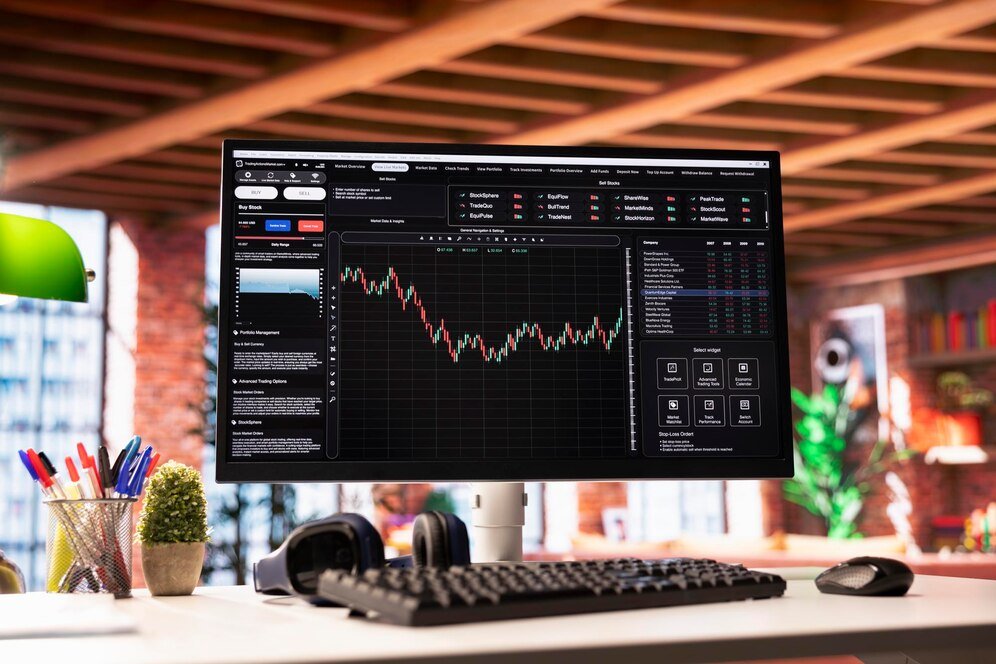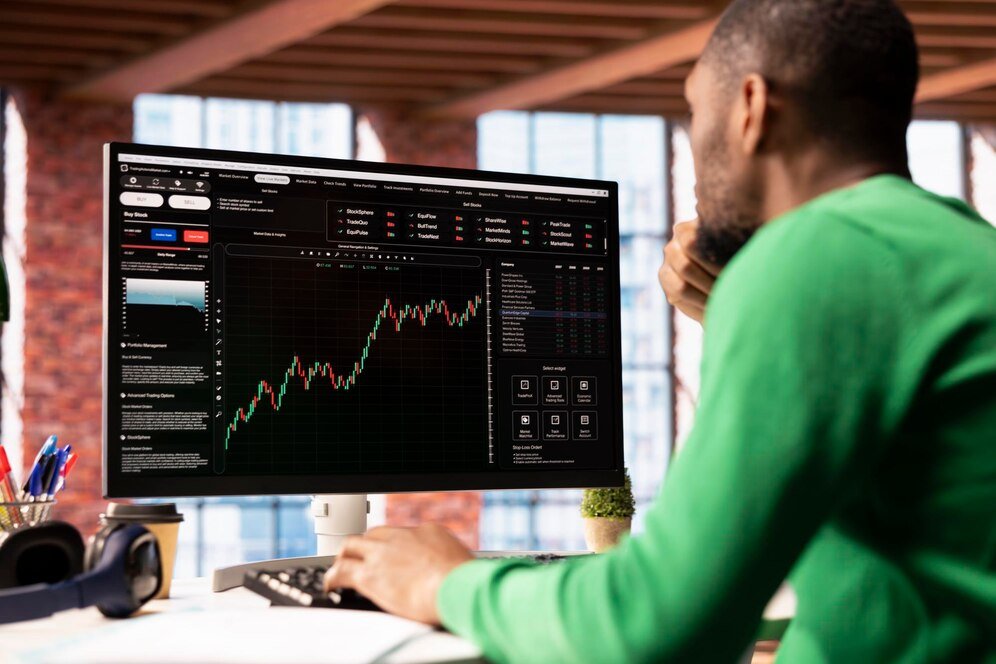Artificial intelligence (AI) is transforming industries worldwide, and the crypto exchange landscape is no exception. As cryptocurrency markets operate 24/7 with high volatility and rapid technological evolution, AI provides powerful tools to optimize trading, improve security, and enhance user experiences. From predictive analytics to advanced fraud detection, the integration of AI is making crypto exchanges more efficient and reliable.
In this blog, we’ll explore how AI is revolutionizing crypto exchanges and what this means for traders, investors, and the broader cryptocurrency ecosystem.
1. AI-Powered Trading Bots
Crypto trading is highly time-sensitive, and AI trading bots have become indispensable tools for maximizing efficiency. These bots analyze vast amounts of data in real-time and execute trades based on pre-defined strategies.
How It Works:
- Algorithmic Trading: AI bots use machine learning to identify profitable patterns and trends in the market.
- High-Frequency Trading (HFT): Bots execute trades within milliseconds, capitalizing on market inefficiencies.
- Customization: Traders can set specific parameters, such as stop-loss limits or target prices.
Impact:
AI trading bots are leveling the playing field, enabling retail traders to compete with institutional investors.
2. Predictive Analytics for Market Trends
AI’s ability to analyze historical data and identify trends is transforming how traders approach the market. Predictive analytics tools leverage machine learning to forecast price movements and market behavior.
Applications:
- Price Predictions: AI models predict future price movements based on historical data, sentiment analysis, and market trends.
- Risk Assessment: AI assesses the probability of market crashes or surges, helping traders manage risk.
- Portfolio Optimization: AI recommends asset allocations tailored to market conditions.
Impact:
This empowers traders to make more informed decisions, reducing reliance on guesswork.
3. Enhanced Security and Fraud Detection
Security is a top priority for crypto exchanges, and AI is revolutionizing how platforms protect their users. AI algorithms can identify suspicious activities and potential fraud with unparalleled speed and accuracy.
Key Innovations:
- Behavioral Analysis: AI monitors user behavior to detect anomalies, such as unusual login locations or rapid withdrawals.
- Fraud Prevention: Machine learning models identify and block fraudulent transactions in real time.
- Anti-Money Laundering (AML): AI automates compliance checks, flagging transactions that may violate regulations.
Impact:
By enhancing security, AI builds trust in crypto exchanges, attracting more users and institutional investors.
4. Personalized User Experience
AI is transforming the user experience on crypto exchanges by personalizing recommendations and interfaces based on user preferences and trading behavior.
Features:
- Tailored Dashboards: AI customizes the platform’s layout to prioritize the user’s preferred trading pairs or tools.
- Smart Alerts: AI generates personalized notifications for price changes or market news.
- Learning Resources: AI curates educational content, helping users improve their trading knowledge.
Impact:
Personalization increases user satisfaction and engagement, making crypto trading more accessible.
5. Automated Customer Support
Customer support is a critical component of crypto exchanges, and AI is improving response times and efficiency through chatbots and virtual assistants.
Capabilities:
- 24/7 Support: AI chatbots handle common queries and troubleshoot issues instantly.
- Language Translation: AI enables exchanges to provide multilingual support, broadening their global reach.
- Sentiment Analysis: AI detects user frustration and escalates issues to human agents when necessary.
Impact:
AI-driven customer support enhances user trust and loyalty, critical for a competitive industry.
6. AI in Market Making and Liquidity Management
Market makers play a crucial role in ensuring liquidity and smooth trading experiences on exchanges. AI-driven algorithms are now optimizing market-making strategies.
How It Works:
- Dynamic Pricing: AI adjusts bid-ask spreads in real-time to maintain liquidity and competitiveness.
- Volume Analysis: AI predicts trading volumes to prevent liquidity shortages.
- Automated Rebalancing: AI balances asset reserves across trading pairs for consistent availability.
Impact:
Improved liquidity leads to reduced slippage and better trading conditions for users.
7. AI in Compliance and Regulation
As regulatory scrutiny of crypto exchanges increases, AI is helping platforms navigate complex compliance requirements.
Applications:
- Transaction Monitoring: AI reviews transactions for compliance with anti-money laundering (AML) and know-your-customer (KYC) regulations.
- Risk Scoring: AI assigns risk scores to users and transactions, simplifying compliance processes.
- Regulatory Updates: AI tracks changes in global regulations and updates compliance protocols automatically.
Impact:
This reduces regulatory risks for exchanges while ensuring a safer trading environment.
8. Sentiment Analysis for Market Insights
Social media and news platforms play a significant role in influencing crypto prices. AI-powered sentiment analysis tools monitor public opinion to gauge market sentiment.
Features:
- News Analysis: AI scans headlines to assess whether news is bullish or bearish.
- Social Media Trends: AI tracks mentions of cryptocurrencies on platforms like Twitter and Reddit.
- Fear and Greed Index: AI generates sentiment scores to help traders anticipate market movements.
Impact:
Sentiment analysis provides traders with a competitive edge by identifying trends before they affect prices.
Challenges and Ethical Considerations
While AI brings numerous benefits to crypto exchanges, it also raises challenges and ethical concerns:
- Bias in AI Models: Algorithms must be trained on diverse data to avoid biases that could impact decision-making.
- Transparency: Exchanges need to ensure users understand how AI-driven tools operate.
- Privacy: Data collection for AI purposes must comply with privacy regulations.
Addressing these challenges will be key to maximizing the potential of AI in crypto exchanges.
Conclusion
AI is revolutionizing crypto exchanges by enhancing efficiency, security, and user experience. From AI-powered trading bots to advanced fraud detection and personalized interfaces, these innovations are reshaping the way users interact with cryptocurrency markets.
As AI technology continues to evolve, its integration into crypto exchanges will likely deepen, driving further innovation and adoption in the cryptocurrency space. Traders and investors should embrace these advancements while remaining informed about the ethical and regulatory implications.
The fusion of AI and crypto is still in its early stages, but one thing is clear: the future of cryptocurrency trading is smarter, faster, and more secure than ever before.
4o













